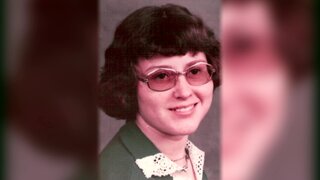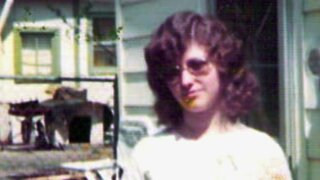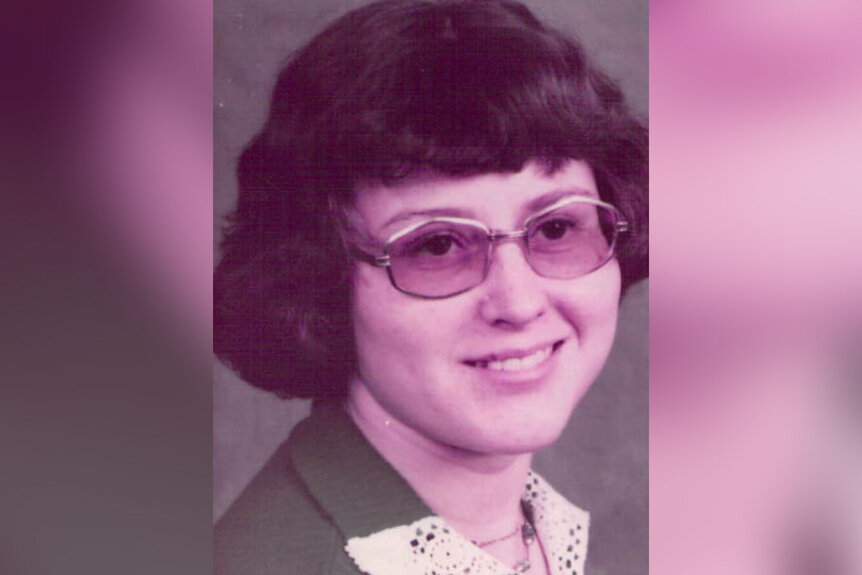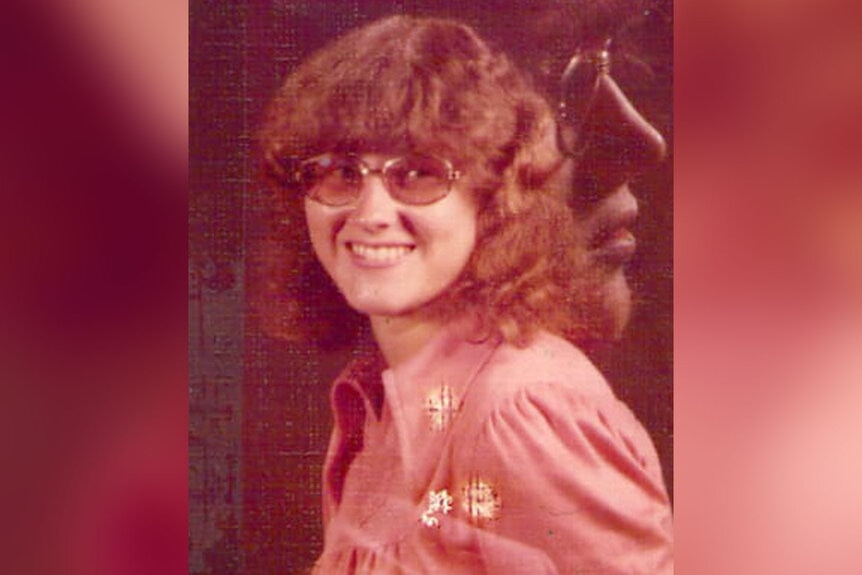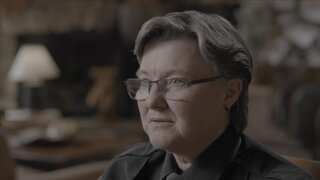Create a free profile to get unlimited access to exclusive videos, breaking news, sweepstakes, and more!
‘It’s Not Fair That He Gets To Live’: Family Of Missing Woman Recalls Killer’s Twisted Murders
Micki Jo West was only 19 years old when she went missing on her way to work, and while someone confessed to her murder, her body has never been found.
In the fall of 1979, a young woman left her home in the early morning hours to go to work and never returned, kicking off an investigation that would last for years.
Micki Jo West, 19, worked as a nurse’s aide at a mental hospital in St. Joseph, Missouri. Those who knew her described her as kind and loved person. On the fateful day of her disappearance, she left for work at 6 a.m., as she always did, to walk the four blocks from her mother’s house to the bus stop.
No one thought that anything was amiss until her mother, Bernita, got a call that evening asking why Micki didn't show up for work that day. Bernita was panicked and spent hours looking for her daughter before tracking down her daughter’s best friend and sister-in-law, Ruth Ann West.
Ruth Ann told Bernita that she suspected that her husband, Marvin Irvin, might have been involved in Micki’s disappearance. Ruth Ann and Irvin had been experiencing marital problems, and Ruth Ann had left home to stay at a motel with their son.
She said that Irvin, a former police officer who had prior brushes with the law, had been harassing Micki to find out Ruth Ann’s location, and that Micki carried a hammer in her purse in case Irvin confronted her.
“I was scared ... I was just hysterical, basically,” Ruth Ann told “Buried in the Backyard,” airing Thursdays at 8/7c on Oxygen.
With Ruth Ann's permission, investigators searched her and Irvin’s home for evidence of foul play, but it turned up empty. Later that day, however, officers were able to track down Irvin and bring him in for questioning. Although he admitted to having approached Micki multiple times to ask about his wife, he claimed that he had no idea where she was.
He also provided an alibi — that he was driving around with a friend named Billy Hays the morning Micki disappeared — and he went on to pass a polygraph test, which helped convince authorities that he was telling the truth.
Still, Ruth Ann suspected her husband was involved in her best friend’s disappearance.
“He was harassing her, so I believed with my whole heart it was him,” Ruth Ann told producers.
As the investigation continued, authorities zeroed in on another suspect: Micki’s husband and Ruth Ann’s brother, Calvin West. The couple had recently separated, and she had gone to live with her mother, who told authorities that Calvin had threatened to throw Micki down the stairs.
Detectives wasted no time interviewing Micki's estranged husband, who claimed he had no idea where Micki was. He gave an alibi for the morning of her disappearance, telling investigators that he was at work, and he also passed a polygraph test.
As authorities reached dead end after dead end, Micki’s loved ones grew distraught.
“Why take Micki? She had a real kind heart, and she's seen good in everybody,” a tearful Ruth Ann told producers. “It's not fair.”
Despite Micki's parents offering a $10,000 reward for information leading to the safe return of their daughter, the case soon went cold.
“We watched for her to come knocking on the door all the time,” Micki’s father, Arden Locke, told producers. “It was hope, but at the same time, we felt like it was false hope, that we were just believing what we wanted to believe.”
A break finally came in the case on Sept. 11, 1986, when an unsigned letter addressed to police was discovered at a shopping mall in Kansas City. The author, who no one had seen leave the note, wrote that they had been with Irvin when he killed Micki. The person said they needed help or they would take their own life.
The strange note was enough for investigators to take another look at the case, and St. Joseph Police Department Detective Tim Schweder soon uncovered new leads.
Since Irvin had passed his polygraph test, investigators had not checked his alibi. So, Det. Schweder wasted no time calling in Hays, the man Irvin claimed he had been with on the morning of Micki’s disappearance, for questioning.
While speaking with investigators, Hays said he had not been with Irvin that morning, and that he did not know what had happened to Micki. This prompted Det. Schweder to track down Irvin for another round of questioning, but he again denied having anything to do with Micki's disappearance.
As authorities continued to investigate — and play their hands close to their chests so that Irvin wouldn’t suspect they were closing in on him — more letters, all dropped off at the same mall, surfaced.
Then, in February 1988, the letter writer sent a note to a local TV station, claiming they would show a reporter where the body was buried if they came to meet him alone.
After that surprising offer, however, the anonymous author did not communicate with authorities or media again. Investigators continued working the case, but they came up empty-handed after interviewing those in Irvin's inner circle.
Things took yet another turn when, in the fall of 1990, another woman, Patricia Rose, went missing in the St. Joseph area after last being seen at a bar. Two months later, another woman, Crystal Simmons, also disappeared after going to a bar.
After Simmons' family reported her missing, investigators interviewed the bartender, who said that right before closing time, he saw Simmons leave with a Black man in his 40s, which fit Irvin’s physical description.
"I was convinced this was no coincidence, and we decided that we needed to investigate these two cases together," Det. Schweder told “Buried in the Backyard.”
Soon after, Det. Schweder received a call from a Missouri Department of Corrections investigator who wanted to report a strange letter that an inmate had received. In the letter, the author said that Irvin had come home bloody with a woman's wristwatch, and detectives soon learned that the letter-writer was none other than Irvin's sister, Mary Irvin.
Investigators discovered that the letter was sent around the same time that Rose went missing. They then surmised that a second letter Mary sent to the prison – referencing her brother coming to her home and needing to borrow a shovel — was related to the disappearance of Simmons.
Detectives were able to get a search warrant for Irvin's home, where they found a small hammer beside his bed, bloody cowboy boots, bloody underwear, and other suspicions items. The inside of a pickup truck on the property was also covered with dried blood.
Authorities quickly arrested Irvin, and DNA evidence soon confirmed that it was Rose’s blood in the truck. Simmons' blood was also detected in another car that was on the property.
After his arrest, Irvin refused to give authorities any information on the murders, but days later, authorities in Highland, Kansas reported that a skeleton had been found in a backyard cornfield by three men who had been out hunting.
Mark Long, a detective with the Doniphan City Sheriff’s Office, was called to the scene to investigate, and while searching the area, he found a soft patch of dirt.
"When I reached down in there, I knew it was hair. I felt the head of a body. It was horrible," Long told “Buried in the Backyard.”
An autopsy confirmed that it was the body of Simmons, and skeletal remains that were found nearby belonged to Rose. A medical examiner concluded that both women had died from blunt force trauma, and while Irvin was charged with both murders, there was not enough evidence to connect him to Micki’s disappearance.
Undeterred, detectives reached out to Irvin's ex-girlfriend, and she told authorities that Irvin had admitted to her that he killed Micki. When she asked him why, he said that he had done it because she wouldn't tell him where Ruth Ann was.
The ex-girlfriend told investigators that when she got into the car with Irvin that night, she saw Micki in the backseat covered by a blanket. She recalled that the young woman weakly asked for help, and when she relayed it to Irvin, he said, “Dead people don’t talk.” He then drove to a cornfield, pulled Micki out of the car, and shot her.
Authorities then charged Irvin with Micki's murder, and he ultimately pleaded guilty to killing all three women. Although detectives never found out who wrote the letters found in the mall, some speculated it could have been Irvin himself, and that he had sent them for his own amusement.
In exchange for agreeing to lead authorities to Micki's body, Irvin pleaded guilty to first-degree murder for the deaths of all three women, and he was sentenced to life in prison, avoiding the death penalty. Ater searching the same backyard cornfield where the other women were buried and Irvin claimed Micki’s body would be found, however, authorities came up empty-handed, devastating Micki's loved ones.
"I don't think they should have plea bargained with him until we had Micki because he didn’t hold up to his end," Ruth Ann told producers. "It's not fair that he gets to live."
In the end, Micki’s family held a memorial service and put up a tombstone for their daughter. To this day, Micki’s body has not been found.
For more “Buried in the Backyard,” tune in to Oxygen on Thursdays at 8/7c or stream any time at Oxygen.com.
